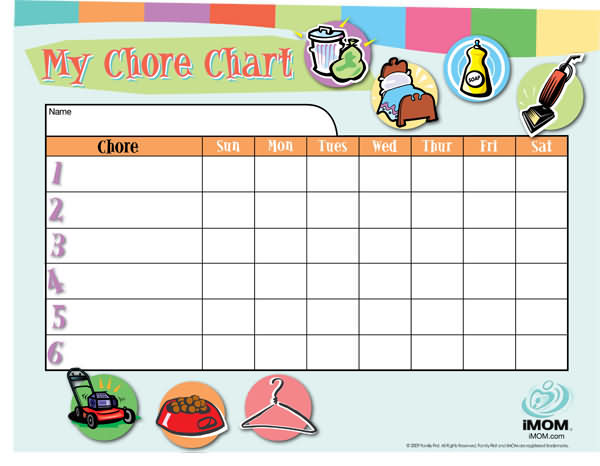Help Wanted: Is Your Child Ready for Chores?
Ah, summer vacation...For families with school-aged children, it’s days filled with running through sprinklers, cooling down with popsicles, and eating picnics in the backyard. It’s also a time filled with endless piles of dirty dishes, mountains of wet towels and bathing suites to wash, and sticky popsicle puddles to wipe up.When the housework starts to feel never-ending and the responsibility of it rests squarely on you and your partner’s shoulders, it might be a good time to establish some household chores for your children to be responsible for.Many kids can benefit from some daily or weekly chores. Some studies even link early childhood chores to later success in adulthood, pointing to strengthened adult relationships and successful careers. The key is knowing what chores are appropriate for their age group, skill level, and maturity. Sample chores by age include:Ages 4-5:
- Clear and set the table
- Dust items that are not fragile
- Help carry and put away groceries
- Put away toys
- Make their bed
- Water plants
Ages 6-8:
- Feed the pets
- Clean the floors
- Take out the trash
- Put away laundry
- Help wash dishes
Getting Started
The first step is to call a family meeting. Find a time when everyone is together and not rushing to the next activity to sit down and:
- Discuss why is helping important?: “It takes all of us working together to make our house and family run smoothly.”
- Make a list of chores that need to be done: feeding the dog, putting away laundry, and taking out the recycling...
- Make a list of the chores your children would like to do first or learn how to do.
- Create a final jobs list and categorize by family member, and whether the chore is daily, weekly, or monthly.
Rewards
Offering rewards for finishing chores is a personal choice. Some parents choose to give rewards as a motivating factor. Others believe that household work is a shared responsibility of all members of the home and doesn’t necessitate a reward. Before discussing your home’s new chore policy, decide where you and your partner stand on the issue.
Creating a Visual Reminder
To help your family track their daily chores, create a visual chore chart that shows who does what (You could write out “sweep” or draw a picture of a broom), as well as columns for each day of daily chores, a column for a weekly chore, and a column for monthly chores. Once the chore is complete, the kids can check off, or place a magnet or sticker on that day. This chore chart is available as a free download here. Or create your own! If you create your own chore chart, you can have your children help draw the lines, color in pictures, or decorate it with fun stickers or stamps!
This chore chart is available as a free download here. Or create your own! If you create your own chore chart, you can have your children help draw the lines, color in pictures, or decorate it with fun stickers or stamps!
Avoiding Chore Wars
The world is full of tasks that no one likes to do (do any of us really enjoy washing dishes?), which is why it’s important to get a jump start on making everyday chores part of your family’s routine. Families usually find that it works well to rotate chores weekly. That way, no one is stuck doing chores they don't prefer for long. Here are some other helpful tips for reducing whining or protests when it comes time to getting their chores done:
- Be clear about their assigned chores and how you expect them to approach the task.
- Decide on a set time of day to finish chores.
- Instead of telling your child to dust, show them how.
- Be encouraging: If your child forgets to put a new garbage bag in the trash can, show her where the bags are and help her put the bag in properly.
Support your children to complete their chores. You may need to monitor the chores daily at first. If they don't do their chores independently, there may be a natural consequence. For example, "We can eat dinner when the table is set." Peer pressure should take care of the delay if they are hungry!Helping with household chores is a terrific way for children to learn the importance of contributing to the family. And, as one study from the University of Minnesota points out, involving children in household tasks at an early age helps them learn values and empathy as well as responsibility. This article is brought to you by Parenting Now! Parenting Educators and authors Amanda Bedortha, Claire Davis and Lynne Swartz and consultant Jay Thompson (andupdatemywebsite.com). Parenting Now! is passionate about happy, healthy families. For more information about Parenting Now! please visit their website (https://parentingnow.org/) or contact us at info@parentingnow.org
Triple P – Positive Parenting Program
Are you interested in receiving more parenting advice? Triple P Online – Positive Parenting Program could be for you! This online parenting program allows you to take a parenting class in the comfort of your own home, at a coffee shop, or wherever you’d like!If you are interested, submit the form below and information about next steps will be sent directly to your inbox. For more information about the program click here.[fusion_builder_container hundred_percent="yes" overflow="visible"][fusion_builder_row][fusion_builder_column type="1_1" background_position="left top" background_color="" border_size="" border_color="" border_style="solid" spacing="yes" background_image="" background_repeat="no-repeat" padding="" margin_top="0px" margin_bottom="0px" class="" id="" animation_type="" animation_speed="0.3" animation_direction="left" hide_on_mobile="no" center_content="no" min_height="none"][gravityform id="1" title="true" description="true"] [/fusion_builder_column][/fusion_builder_row][/fusion_builder_container]
